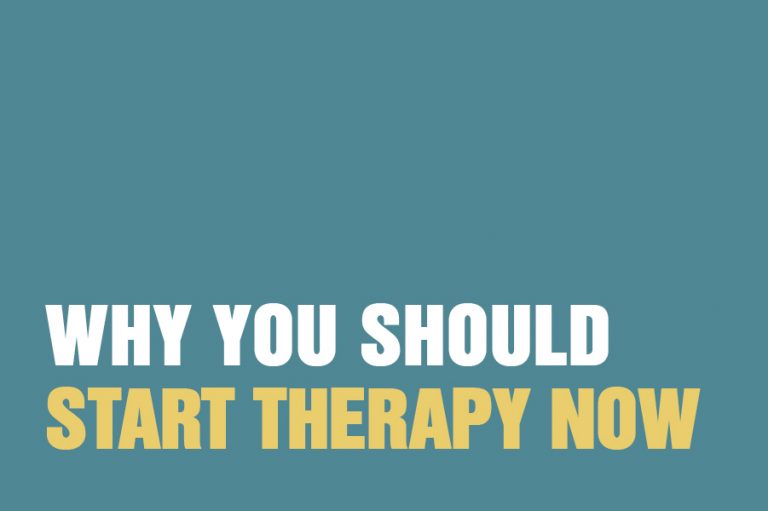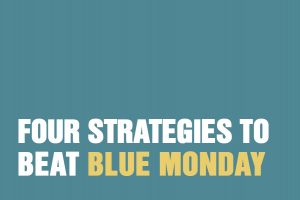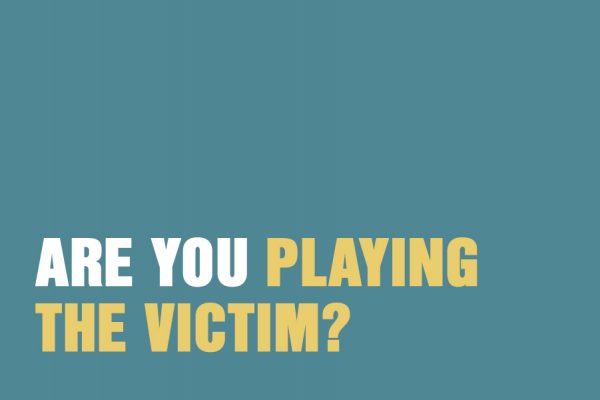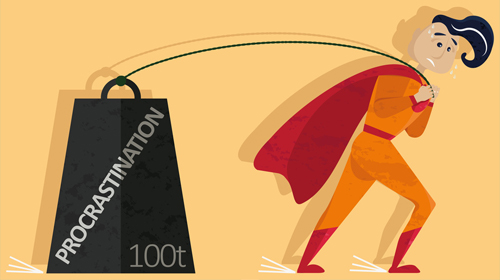There are almost as many reasons to start therapy as there are people starting therapy. It might be that you have been feeling sad or had low mood for a while, or that you stay awake worrying about things, or struggle to control your emotions or form relationships. But whatever the thing that is bothering you, there is only one reason to start therapy now, and that is: you want to live well and you think you might need some help with that. It’s the exact same reason so many people join the gym in January – they want to get healthy, be healthy, stay healthy.
There is a common misconception that if you are in therapy or seeking help with your emotional problems, you must be in poor mental health. This is not necessarily true. We all need a little help sometimes whether we define ourselves as having a mental health issue or not. And starting therapy is the equivalent of going to A&E, the GP and the gym in that it is not just for an emergency or to treat an illness it is also about prevention and maintenance.
There’s not a person alive who grew up straight in the sunshine like a sunflower. We all have the occasional dark or tangled bit. Or a piece of ourselves that is not functioning well and could benefit from being given time and space so that you can optimise all areas of your life. And this is an excellent time to seek help with that because it’s the New Year and we all want to start a new year giving everything our very best.
What are the most common reasons people start therapy?
Everything feels incredibly intense
There are times when someone says something thoughtless, your printer doesn’t work or a driver cuts you up and you just feel a bit annoyed, fix the problem or carry on. There are other times when the exact same trigger to anger can bring on an almost volcanic rage. If any of your emotions — fear, grief, shame, guilt, anxiety, etc — feel huge, out of proportion, overwhelming or unmanageable, this could be a flag that it is a good time to stop and examine them. Very often, these ‘supersized’ emotions are a signal that deeper issues lie beneath.
Your relationships don’t seem to work
If things with your partner feel constantly strained, or if talking to someone you find attractive makes you very anxious, or, you panic if you cannot talk to a loved one every half hour, then this relational pattern may point to attachment issues. Sorry if that sounds a bit jargon-y, but attachment just means the way you were cared for by your parents and how secure, or not, you were in their love and attention. Everyone has their own unique attachment style and if your relationships are becoming difficult, it could be a good time to bring this to light and work out if there is anything you would like to change or improve or understand better.
You feel disconnected from everything
In their initial sessions, I often hear my clients say they don’t think anything really matters or there’s “just no point” to anything. This feeling of disillusionment and disconnection signifies a general feeling of unhappiness. And seeing a therapist can be the thing to help you find clarity, change direction or regain purpose.
You feel in pain or physically unwell
I have to say that as a psychotherapist and a GP patient, I really don’t understand why we have this division between mental and physical health — it’s all your health! Your mind is in your body and vice versa! So you won’t be surprised to hear that I think that our physical health is impacted by our emotions, and vice versa. Overall health requires balance, and your psyche can be key to finding that balance.
You are using substances to cope
If you find yourself using drink, drug or food in greater quantities or more often then usual — this could be a sign that you’re trying to numb or avoid feelings that could be worked on. Equally, rather than substances, this ‘self-medication’ could be activities or behaviours such as exercise or work or hair-pulling or nail-biting.
What can therapy do for you?
A safe place: In a way therapy is the ultimate ‘safe place’. It’s somewhere you are accepted for who you really are, and actively listened to and heard by someone who is genuinely interested in you and what you have to say.
Objectivity: Therapy is a very different experience to talking to and airing your problems to your friends, because they are in a way, a blank slate. You have no history with them, they don’t see you a certain way and are there to give you the space to explore your thoughts and feelings without any form of judgement or consequence.
Better relationships: Whatever it was that brought you into therapy, sitting opposite a therapist for 50 minutes every week can boost your ability to connect with others. Therapy is a sort of relationship, a clinical alliance, and this relationships can help you to become more open and self-aware in your dealings with others.
The possibility of it being transformative: Therapy can help you to feel supported while you work out how to work towards your therapy goals and bring about genuine change.
If you feel you would like a safe space in which to explore whether therapy is for you, just call 020 8673 4545 or email [email protected] for a confidential appointment.







